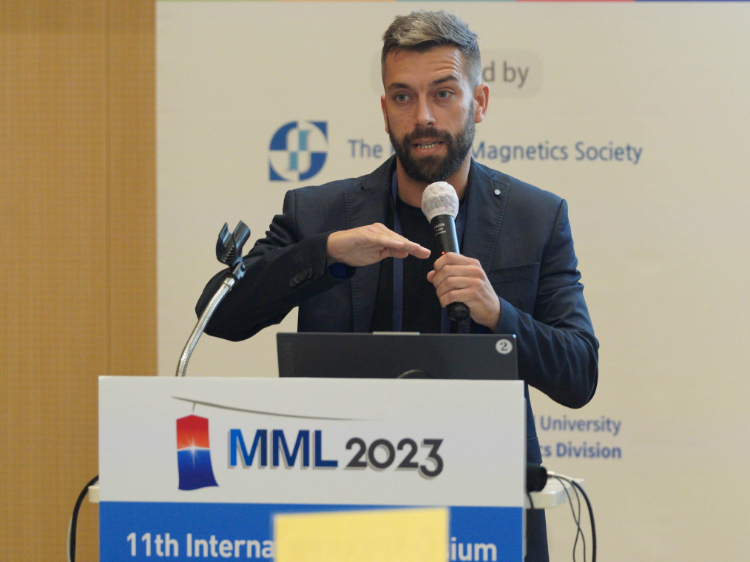
The CIDEGENT programme is the most competitive modality of the Gen-T Plan aimed at attracting, retaining and consolidating scientists of excellence from anywhere in the world to develop an R&D&I project in the Valencian Community. Baldoví's candidacy, presented in the area of Materials Sciences, has obtained the highest score among all the applicants in this year's call (see resolution here).
Baldoví (Xàtiva, 1986) is currently director of the 2D Smart Materials research group at ICMol, principal investigator of the ERC Starting Grant 2D-SMARTiES and the Marie Curie SpinPhonHyb2D, as well as Spain's representative on the management committee of the COST SUPERQUMAP action, which involves 29 partner countries. His research focuses on the design of new materials at the monolayer boundary with interesting magnetic properties as well as the control of these properties by external stimuli.
A chemist by training from the University of Valencia, with a master's degree and doctorate from ICMol in the field of nanoscience and nanotechnology, Baldoví was a Marie-Sklodowska Curie researcher for the European Commission at the Max Planck Institute for the Study of the Structure and Dynamics of Matter in Hamburg (Germany). This postdoctoral experience allowed him to expand his research interests into the field of theoretical modelling of two-dimensional materials and their heterostructures, enabling him to design new multifunctional materials.
In January 2020 she was able to return to ICMol after obtaining a CDEIGENT excellence contract as part of the GenT Plan for attracting talent abroad funded by the Valencian Government. Two years later he received a Starting Grant from the European Research Council (ERC) worth €1.5 million to develop his 2D-Smarties research project, focused on the chemical design of smart molecular devices for the breakthrough of information technologies.
With 2D-SMARTiES, Baldoví's group is contributing to the development of molecular magnonics - an emerging technology that allows information to be transmitted, processed and detected using magnons (electron spin waves) in a controlled manner - and thus to the revolution in information technologies through two-dimensional smart materials.
Now, the 2D-SWiMS project will allow it to incorporate two new pre-doctoral researchers to a line that aims to establish a general methodology to create a new generation of nanodevices of interest in the field of magnonics, based on 2D multiferroic materials that can be coherently controlled by electric fields.
"In this CIDEGENT project we seek to go one step further by incorporating the electric field as a new key player in the control of spin waves, and to this end we will focus on materials that combine ferromagnetic and ferroelectric ordering, known as multiferroic materials, at the monolayer boundary".
Baldoví stresses the importance of receiving this new project at a relevant moment in his career: "The 2D-SWiMS project will be developed in parallel in time to the ERC 2D-SMARTiES and will open a new strategic research line in the group, an expansion of research interests and a consolidation in terms of management and promotion of researchers. Both projects will be mutually beneficial".

